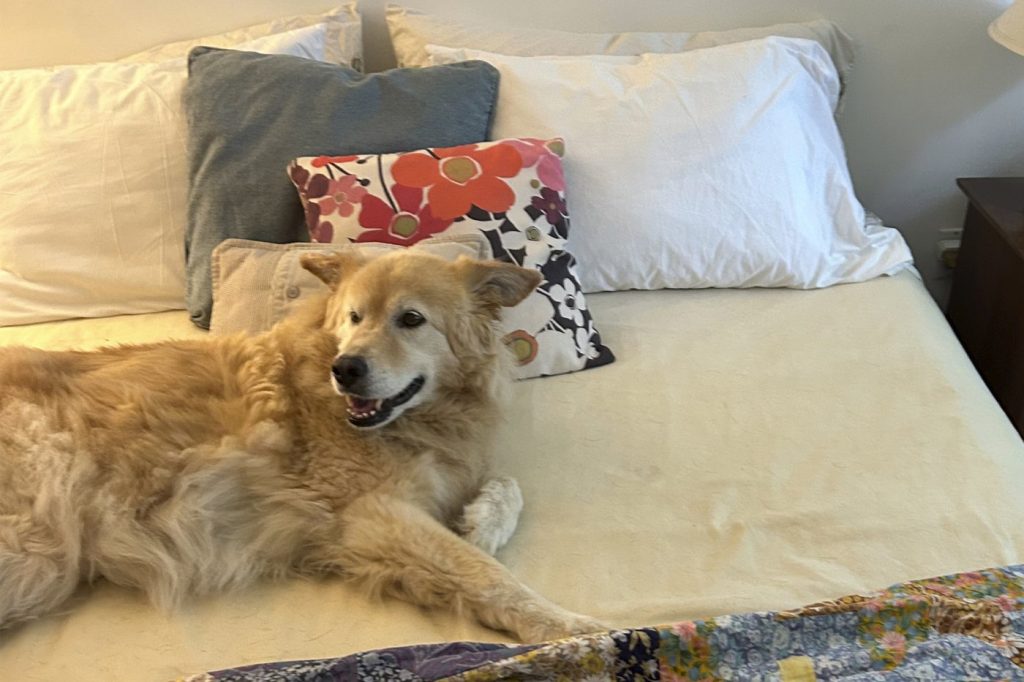Pets have long been considered companions and sources of comfort for many, but recent studies suggest that our furry friends might also be sleep disruptors. Numerous pet owners allow their animals to sleep in bed with them, often finding that while this can lead to disrupted sleep, many deem the emotional benefits worth the trade-off.
Melissa Milanak, a professor at the Medical University of South Carolina and a specialist in sleep health, noted that many individuals in her clinic report frequent disturbances caused by their pets during the night. While she acknowledges that this isn't universally detrimental, there is substantial evidence suggesting that pets can negatively impact sleep quality.
Generally speaking, having a pet is beneficial for people's health; pets are known to reduce stress levels and encourage physical activity. However, the sleep cycles of dogs and cats differ significantly from those of humans. Dogs, for instance, are typically light sleepers and may awaken multiple times throughout the night, often engaging in instinctual behaviors like scratching at bedding that can hinder deeper sleep cycles. Similarly, cats, known for their "zoomies," tend to be most active during dawn and dusk, aligning with their evolutionary hunting patterns.
Milanak also highlighted that allergens such as pet dander and microbes that pets introduce into the home can affect owners' respiratory health and hinder their ability to obtain sufficient deep sleep. Brian Chin, a social and health psychology professor at Trinity College in Connecticut, pointed out through his research that sleeping with pets has been linked to poorer sleep quality and increased insomnia symptoms. This is notable because pet owners may underreport sleep problems, not recognizing their pets as potential culprits for disturbances.
Chin admits that he personally struggles with sleep disruptions from his cats, indicating that a higher number of pets correlates with increased sleep disruptions. Addressing this issue is not straightforward, however, as for many individuals, sharing a bed with their pet has become ingrained in their sleep routine, making it challenging to adjust.
Milanak's approach to discussing pet sleep arrangements with new patients consists of asking probing questions about their nightly experiences before broaching the topic of pet co-sleeping. For those waking multiple times a night, it may only become apparent that their pets are affecting their sleep once the association is made. Many individuals possess strong emotional ties to their pets, making the idea of separating sleeping arrangements akin to giving up a habit like smoking.
For those looking to maintain better sleep without removing their furry companions from the bed, some practical suggestions include placing a dog bed on the floor or restricting access for cats during the night. Regularly washing bed linens and adjusting sleep schedules to sync with pets' routines are also recommended strategies.
Despite the potential downsides, many pet owners place significant value on the emotional and bonding benefits of co-sleeping with their pets. Angela Wilson, residing in Cobb County, Georgia, shares that despite providing her golden retriever, Sadie, with plush beds, Sadie still prefers to sleep in her owner’s bed. Luckily, Wilson reports that Sadie does not disrupt her sleep, emphasizing the gentle temperament of her dog.
Ultimately, while sleep may be occasionally disrupted, the strong emotional connections formed with pets often take precedence over these minor inconveniences for many owners.












